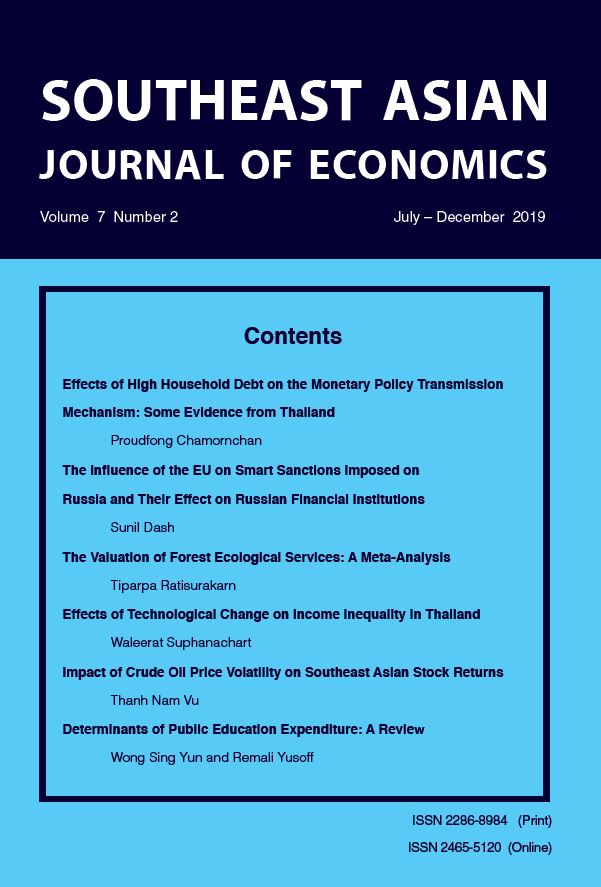The Effects of Foreign Direct Investment on Income Inequality of Thailand
Keywords:
Foreign Direct Investment, Income Inequality, Consumption Expenditure Inequality, Absolute Poverty, ThailandAbstract
In the era of globalization, whether foreign direct investment (FDI) has contributed to larger income gaps is still open to debate, especially for many emerging market economies. This paper explores the effects of sectoral FDI on income inequality using panel data across the five regions of Thailand over the period of 1998–2017. We find that at the regional level, FDI in the manufacturing sector has directly contributed to reducing income inequality through employment effects and knowledge spill overs, while FDI in the agricultural sector, the manufacturing sector and the service sector have tended to lower the consumption expenditure inequality under the effects of decreasing consumption propensity. In addition, FDI in the service sector has tended to reduce absolute poverty at the aggregate level, while FDI in the agricultural sector and the anufacturing
sector have contributed to increasing absolute poverty.
Downloads
Published
How to Cite
Issue
Section
License
The submission of a manuscript implies that the paper is an original work and has not been published elsewhere. The author(s) authorize the journal to reproduce or distribute the paper in printed or other electronic forms.







